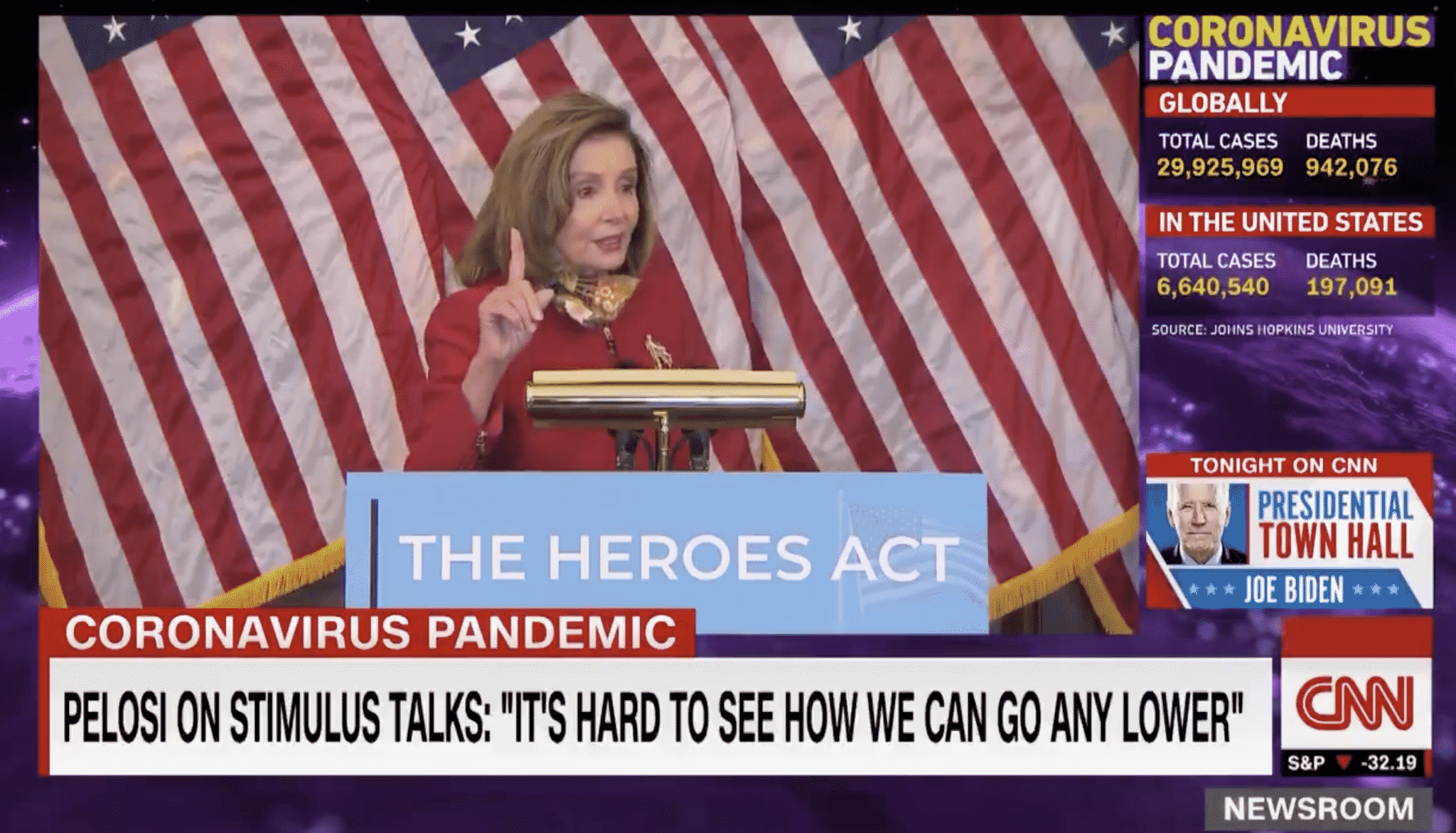House Speaker Nancy Pelosi (D-Calif.) is reiterating that Democrats are willing to compromise on coronavirus relief negotiations. Still, she does not believe they will support anything less than her previous offer.
During a press briefing, Pelosi noted Democrats came down $1 trillion from their original proposal, and when they asked Republicans to come up $1 trillion, they went down.
“When we go into a negotiation, it’s about the allocation of the resources,” Pelosi said.
She added, “But it’s hard to see how we can go any lower when you only have greater needs.”
Check out her comments below:
House Speaker Nancy Pelosi on stimulus talks with Republicans: "When we go into a negotiation it's about the allocation of the resources, but it's hard to see how we can go any lower when you only have greater needs" pic.twitter.com/lPG90B2RkC
— CNN Politics (@CNNPolitics) September 17, 2020
Pelosi’s comments come just one day after President Donald Trump advised Republicans to “go for the much higher numbers” on the next relief bill, as IJR previously reported.
Pelosi said she offered White House Chief of Staff Mark Meadows $2.2 trillion for a full package, which is less than the original asking price of $2.4 trillion.
Pelosi and Senate Minority Leader Chuck Schumer (D-N.Y.) expressed their appreciation for Trump’s call for a bigger relief bill, as IJR previously reported.
They said in a statement they are “encouraged” by his remarks and “look forward to hearing from the President’s negotiators that they will finally meet us halfway.”
Democrats and Republicans have been negotiating for the past six weeks.
The House approved a $3.4 trillion aid plan in May, but Senate Majority Leader Mitch McConnell (R-Ky.) called for a “pause” in new funding.
He proposed a $1 trillion relief package that was later rejected by Republicans.
McConnell put up a $300 billion bill for a vote, which was shot down by Democrats after they claimed it did not meet the needs of the American people.
The new House proposal includes another batch of direct payments to Americans, $500 billion in funding for state and local governments, and unemployment benefits.

























 Continue with Google
Continue with Google